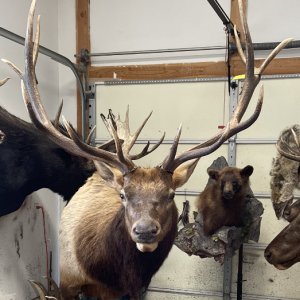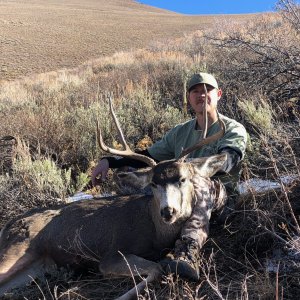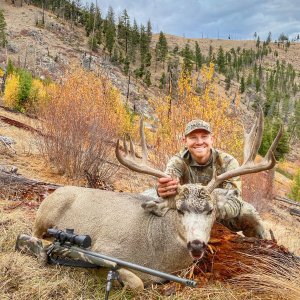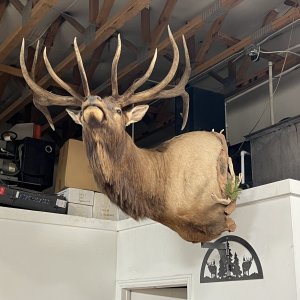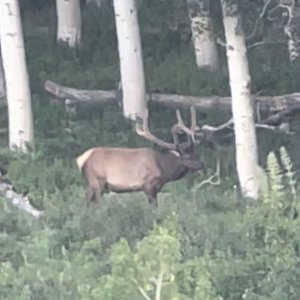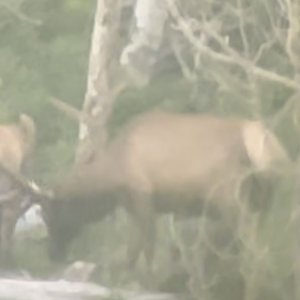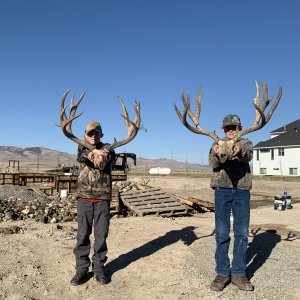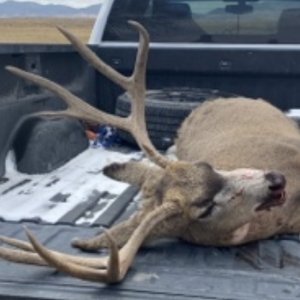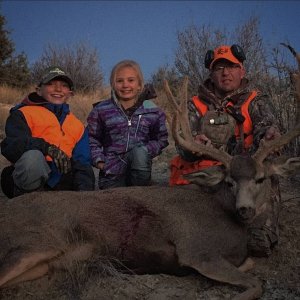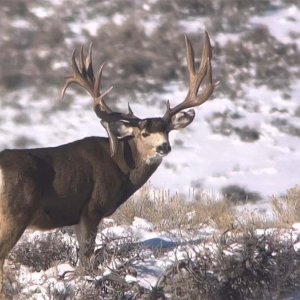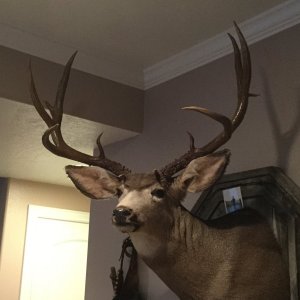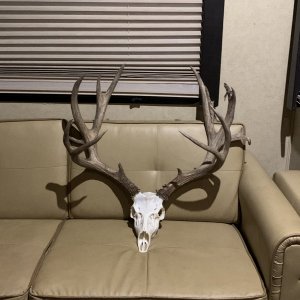walltenthunter
Member
- Messages
- 9
If you have read posts in the deer and elk forums, you may be aware the Colorado Division of Wildlife is right now conducting public meetings to obtain the public perspective on big game license allocation. I have served on the License Allocation Committee as Sportsman, one of 15 folks on that Committee. I very much encourage all resident and non-resident hunters to pull up the Colorado Division of Wildlife website and then pull down the big game license allocation sub site. They need to hear back from the public by early August, 2005.
Essentially there are about 14 issues the Colorado Wildlife Commission would like public perspective on, issues from Landowner Preference, to the Resident/Non-Resident General Draw Split, Preference Points, Outfitter allocations, youth hunting tags, etc. I would tell you the two most important issues as I have seen them representing you (sportsmen) is Landowner Preference and the Resident/Non-Resident Split. These are not easy issues, nor ones with no consequences for change, though change may happen in some fashion. Important to understand as a basic is that Landowner Preference tags come off the top, and Landowners presently have 15% of tags for all hunt codes for deer and antelope, as well as hunt codes for elk in units limited for all rifle seasons. If you want some background on Landowner Preference you can pull up a good deal of information under the Colorado Wildlife Federation website. I wrote much of that 'working paper' on Landowner Preference.
Representing sportsmen, my conclusion was one in minority that Landowner Preference remain at 15% and that the Resident/Non-Resident Split move very moderately from present level 60% Resident/40% Non-Resident to a 65/35 or as high as 70/30. Colorado hunter levels are up about 10% on both Deer and Elk over the past 4 years and Non-resident hunters are down about 7% on both species. Colorado also is one of the faster growing states, plus our present allocation is far higher for NR hunters than any other western states. Additionally Colorado uniquely offers Over The Counter tags, so basically anyone can hunt if they have the desire. You all might find it interesting others on the Committee favored in majority (13 of 15) more landowner tags (up from 15% to as high as 35% for eastern plains and 25% in 1,2,10/201 units, and 18% elsewhere in Colorado, plus the resident allocation after Landowner Preference as as high as 85% on the plains, though the net to residents on a per 100 licenses was only about 4 licences. If you are confused now, it is normal. The 'compromise' solution split the state into three zones, and the % allocation to non-residents under that solution would be as lowest on the plains, then followed by the 4 'premier units 1,2,10,201, then least affected the other statewide units. Overall my perspective was that any decrease in NR hunter opportunity ought to be minimal, and as income neutral as possible. We very much value every hunter's hunting opportunity.
I will post the exact %s and how they sort out per 100 licenses issued in a follow-up post.
I would also be pleased to answer any questions you fellow hunters might have, as we all are on a learning curve.
Thanks and let me (and the Colorado Division of Wildlife) know your perspectives.
Kent Ingram
Colorado Wildlife Federation
Essentially there are about 14 issues the Colorado Wildlife Commission would like public perspective on, issues from Landowner Preference, to the Resident/Non-Resident General Draw Split, Preference Points, Outfitter allocations, youth hunting tags, etc. I would tell you the two most important issues as I have seen them representing you (sportsmen) is Landowner Preference and the Resident/Non-Resident Split. These are not easy issues, nor ones with no consequences for change, though change may happen in some fashion. Important to understand as a basic is that Landowner Preference tags come off the top, and Landowners presently have 15% of tags for all hunt codes for deer and antelope, as well as hunt codes for elk in units limited for all rifle seasons. If you want some background on Landowner Preference you can pull up a good deal of information under the Colorado Wildlife Federation website. I wrote much of that 'working paper' on Landowner Preference.
Representing sportsmen, my conclusion was one in minority that Landowner Preference remain at 15% and that the Resident/Non-Resident Split move very moderately from present level 60% Resident/40% Non-Resident to a 65/35 or as high as 70/30. Colorado hunter levels are up about 10% on both Deer and Elk over the past 4 years and Non-resident hunters are down about 7% on both species. Colorado also is one of the faster growing states, plus our present allocation is far higher for NR hunters than any other western states. Additionally Colorado uniquely offers Over The Counter tags, so basically anyone can hunt if they have the desire. You all might find it interesting others on the Committee favored in majority (13 of 15) more landowner tags (up from 15% to as high as 35% for eastern plains and 25% in 1,2,10/201 units, and 18% elsewhere in Colorado, plus the resident allocation after Landowner Preference as as high as 85% on the plains, though the net to residents on a per 100 licenses was only about 4 licences. If you are confused now, it is normal. The 'compromise' solution split the state into three zones, and the % allocation to non-residents under that solution would be as lowest on the plains, then followed by the 4 'premier units 1,2,10,201, then least affected the other statewide units. Overall my perspective was that any decrease in NR hunter opportunity ought to be minimal, and as income neutral as possible. We very much value every hunter's hunting opportunity.
I will post the exact %s and how they sort out per 100 licenses issued in a follow-up post.
I would also be pleased to answer any questions you fellow hunters might have, as we all are on a learning curve.
Thanks and let me (and the Colorado Division of Wildlife) know your perspectives.
Kent Ingram
Colorado Wildlife Federation


